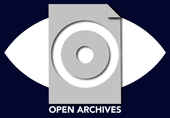Promotion of teacher training in the transformation of learning
DOI:
https://doi.org/10.15332/erdi.v8i2.2317Keywords:
“Todos a aprender” (Let us all learn) Program (PTA), Located Work Sessions, conceptions, pedagogical practices, planning, formative evaluation and use of educational materialAbstract
The purpose of this study was to characterize the conceptions and practices of the focused teachers, of two educational institutions of Piedecuesta, from the Located Work Sessions, which are oriented from the “Todos a aprender” (Let us all learn) Program (PTA), in three axes: Planning, formative evaluation and use of educational materials. To this end, a qualitative design of an interpretive ethnographic type was chosen, which theoretically was supported by authors such as (Reyes, Salcedo, & Perafán, 1999), who make reflections on the conceptions of science and its relation to the practices of teaching and learning, emphasizing teaching as technical, critical and practical or emancipatory action and its results, in relation to learning. The conclusions show that teachers reflect on the need to organize classroom actions in a structured way, which will help show the learning goals. They state that the PTA strategies allow strengthening educational dynamics, conceive formative evaluation as a step to improve learning processes, consider the relevance of educational materials in relation to pedagogical knowledge and the strengths that will be acquired when developing it, understand that good practices guarantee real changes that seek to achieve quality goals. Based on these findings of teachers ‘expectations and suggestions, it was possible to design a pedagogical strategy for curricular strengthening to build the class plan in a fun and innovative way, consolidating the educational processes and responding to the students’ learning needs.
Downloads
References
Camargo, M. et al. (2004). Las necesidades de formación permanente del docente. Recuperado de http://educacionyeducadores.unisabana.edu.co/index.php/eye/article/view/550/643
Gómez, J. (2002). La pedagogía como disciplina fundante en el proceso de socialización de docentes. Recuperado de http://www.idep.edu.co/revistas/index.php/educaciony-ciudad/article/viewFile/178/167
Imbernón, F. (1994). La formación y el desarrollo profesional del profesorado. Recuperado de https://dialnet.unirioja.es/servlet/libro?codigo=124279
MEN. (1994). Ley 115. Recuperado de https://www.mineducacion.gov.co/1621/articles-85906_archivo_pdf.pdf
MEN. (2009, abril). Decreto 1290. Recuperado de https://www.mineducacion.gov.co/1621/articles-187765_archivo_pdf_decreto_1290.pdf
MEN. (2012). Formación Situada. Recuperado de https://www.mineducacion.gov.co/1621/articles-316678_archivo_pdf_formacion_situada.pdf
MEN. (2013). Sustentos del Programa Todos a Aprender. Recuperado de https://www.mineducacion.gov.co/1621/articles-310659_archivo_pdf_sustentos_junio27_2013.pdf
MEN: Colombia la mejor educada 2025. (2014). Identificar, promover y apoyar cambios que busquen mejorar la calidad de la educación en los niños. Bogotá: Magisterio.
MEN. (2014). Estandares básicos de calidad. Recuperado de https://www.mineducacion.gov.co/1621/articles-116042_archivo_pdf3.pdf
MEN. (2014). Formación docente. Un aspecto clave para la calidad educativa de Colombia. Recuperado de https://www.mineducacion.gov.co/cvn/1665/w3-article-341026.html
MEN. (2014). Lineamientos curriculares. Recuperado de https://www.mineducacion.gov.co/1759/w3-article-339975.html
MEN. (2014). Programa Todos a Aprender. Recuperado de https://www.magisterio.com.co/articulo/programa-todos-aprender-
pta
MEN. (2015). Colombia la más educada en el 2025. Recuperado de https://www.mineducacion.gov.co/1759/articles-356137_foto_portada.pdf
MEN. (2015). Plan Nacional del Desarrollo. Recuperado de https://www.minagricultura.gov.co/planeacion-control-gestion/Gestin/Plan%20de%20Acci%C3%B3n/PLAN%20NACIONAL%20DE%20DESARROLLO%202014%20-%202018%20TODOS%20POR%20UN%20NUEVO%20PAIS.pdf
MEN. (2016). Estrategia de Integración de Componentes Currículares. Recuperado de http://aprende.colombiaaprende.edu.co/es/node/89185
MEN. (2017). Siempre Día E. Recuperado de http://aprende.colombiaaprende.edu.co/sites/default/files/naspublic/ABC%20de%20la%20EICC.pdf
MEN. (2018). Colombia Aprende. Mallas de aprendizaje lenguaje quinto. Recuperado de http://aprende.colombiaaprende.edu.co/es/siemprediae/89841
MEN. (2018). Resultados Pruebas Saber 2018. Recuperado de http://www2.icfesinteractivo.gov.co/resultados.php
Montero. (2001). La construcción del conocimiento profesional docente. Rosario, Argentina: Homo Sapiens Ediciones. Recuperado de http://www.redalyc.org/pdf/274/27419216.pdf
OCDE. (2016). Revisión de políticas nacionales. La educación en Colombia. Recuperado de https://www.mineducacion.gov.co/1759/articles-356787_recurso_1.pdf
Penagos, R. (2006). Práctica investigativa en ciencias sociales. Recuperado de https://books.google.com.co/books?id=skJqIFA2wlMC&pg=PA101&dq=La+pr%C3%A1ctica+pedag%C3%B3gica,+como+cualquier+otra+pr%C3%A1ctica+est%C3%A1+guiada+por+concepciones+o+preconcepciones,+hondamente+arraigadas+e+inconscientemente+asentadas+en+los+h%C3%A1bitos+
Reyes, L., Salcedo, L., & Perafán, G. (1999). Acciones y creencias. El tesoro oculto del educador. Recuperado de http://aprendeenlinea.udea.edu.co/revistas/index.php/revistaeyp/article/view/5867
Robbins, S. (1987). Cultura organizacional. Recuperado de http://www.monografias.com/trabajos65/cultura-organizacional/cultura-organizacional.shtml
Shulman, L. (1987). Conocimiento didáctico del contenido y formación del profesorado. Recuperado de http://m.aufop.com/aufop/uploaded_files/articulos/1279608817.pdf
Shulman, L. (2005). Conocimiento y enseñanza: fundamentos de la nueva reforma. Recuperado de http://www.redalyc.org/pdf/567/56790202.p
Downloads
Published
How to Cite
Issue
Section
License
Publishing and copyright
The authors of the articles accepted to be published, transfer proprietary rights to Espiral, Journal of Teaching and Research for the partial reproduction of the published work in electronic media (websites, indexes, directories), as long as their purposes are academic but not commercial.








